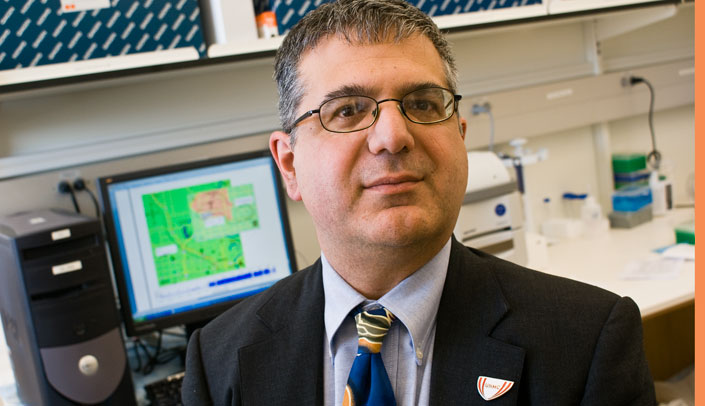The responsibility of caring for loved ones with Alzheimer’s disease or dementia can be overwhelming — physically, mentally and financially. In 2015, an estimated 33,000 Nebraskans had the diseases, a number projected to increase by 21 percent in 2025 to 40,000.
Seeking participants
For information about the study, contact Jackie Whittington at (402) 559-6117.
Steve Bonasera, M.D., Ph.D., associate professor of geriatrics at UNMC, is co-investigator of a $10 million grant with the University of California San Francisco supporting a study to bring respite to caregivers.
“There are Nebraska family members who care for loved ones with Alzheimer’s or dementia who are going it alone with little or no resources or training,” said Dr. Bonasera. “The study provides the opportunity for caregivers to be networked with advice, expertise and resources from some of the top specialists in the world in Alzheimer’s and dementia.
“Some caregivers are really stressed out. We will find out what needs they have, teach them what to expect and put together a plan on how to work with their health providers.”
The grant, awarded by the U.S. Centers for Medicare & Medicaid Innovation, created a family-centered model that provides around-the-clock online education and consultation for patients with Alzheimer’s disease and their caregivers. It uses phone- and web-based tools. Some patients will use remote monitoring with smart phones and home sensors.
The study will compare the current standard of care model, using caregivers in a control group, to the new model being used in the study. The goal is to determine if the new model improves the quality of life of both patients and caregivers. The hope is that the interventions will keep people with dementia at home longer and at the same time lower family and caregiver stress.
The model, called Dementia Care Ecosystem, will not replace clinicians, but rather will deliver to patients and their families educational resources developed over the past decade by UCSF’s Memory and Aging Center and UNMC physicians. This will help clinicians monitor their patients.
Each patient will be monitored and will have a navigator who will check in with the caregiver by telephone or with a personal visit. The navigators are supported by nurses, social workers and pharmacists with expertise in dementia care.
Researchers hope to create a virtual care system that is supportive enough to protect the mental and physical health of caregivers, who tend to neglect their own needs. If caregivers learn to cope better, patients may be able to remain at home longer before moving into assisted living.
